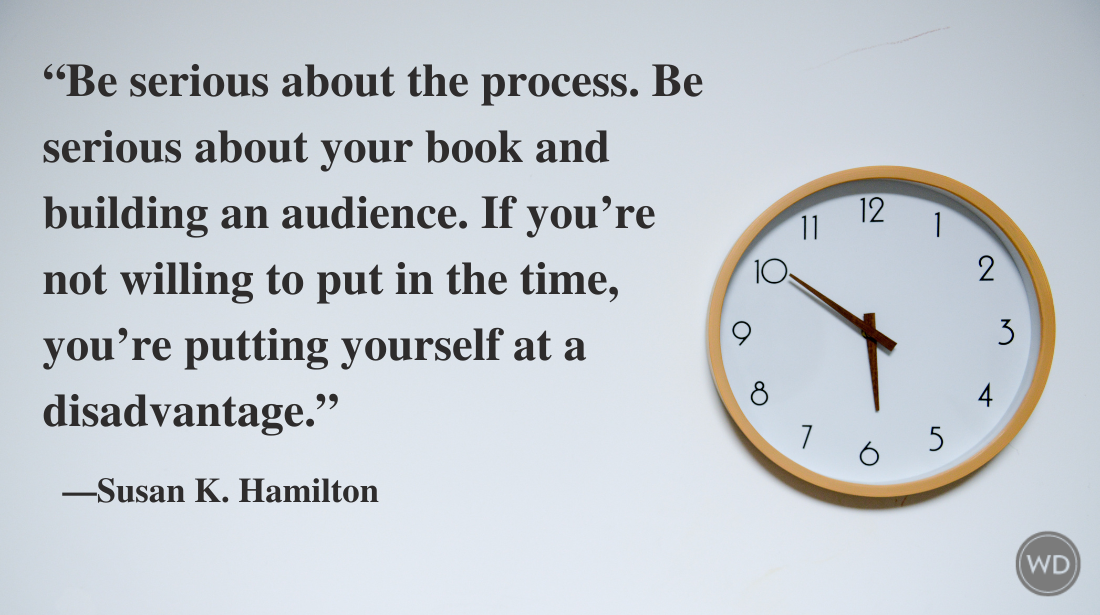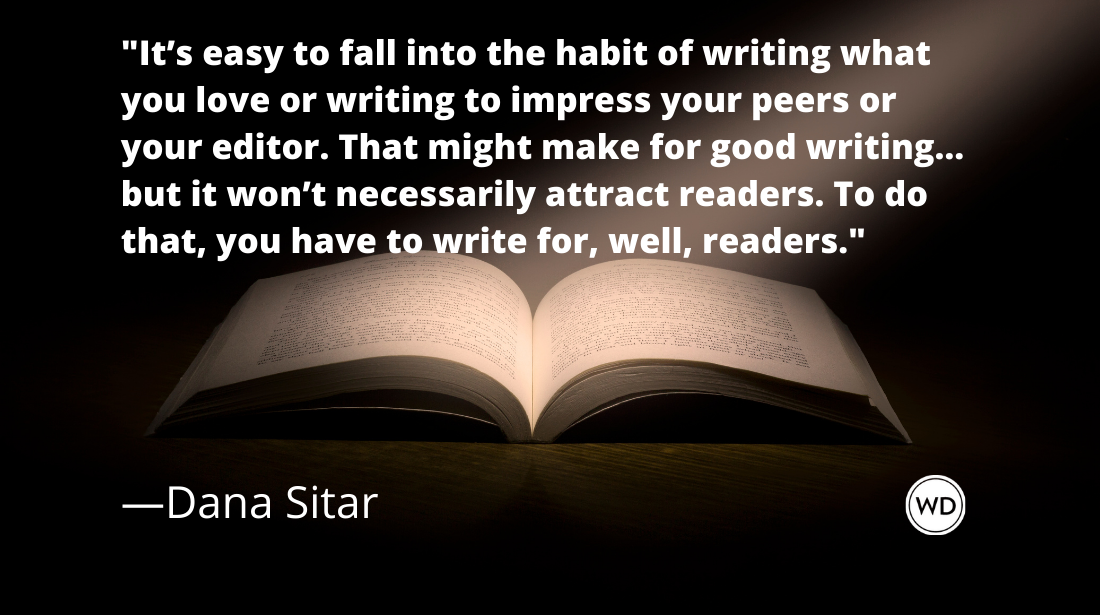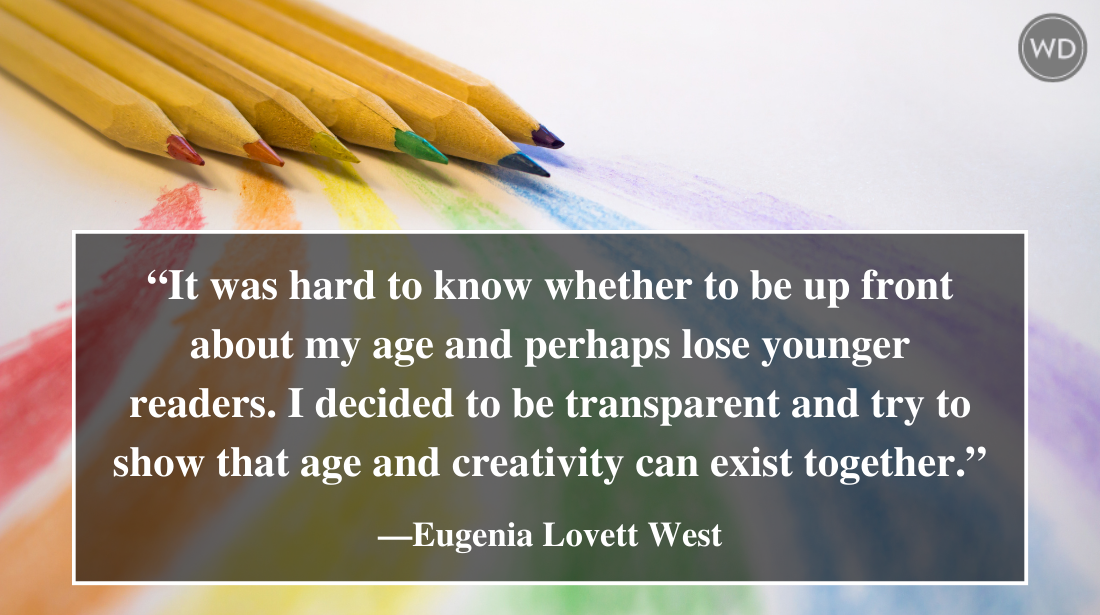What, Me Market? (Adventures of a First-Time Author)
Today’s guest post comes from celebrated short-story writer Robin Black. I asked her to share how she managed to get an agent and secure a deal for her collection of…
Today's guest post comes from celebrated
short-story
writer Robin Black. I asked her to
share how she managed to get an
agent and secure a deal for her collection of short stories, which as
many of us know, "do not sell" — and then how she approached marketing.
This is the second part of a two-part series. Go read the first part.
3. After a Manuscript Sells
I think of the eighteen months between when my manuscript sold and when my book finally came out as being a lot like my twenties—and not in a good way. I wasted a lot of opportunities in my twenties. I made some bad choices. I was left having to play catch-up in any number of ways.
There are times in your life when you learn from your successes and there are times when you learn from your mistakes. My twenties and the lead up to my first book publication both fall into the latter group, I’m sorry to say.
Leaving aside whatever I did wrong a quarter century ago, here are some of the things I did wrong last year.
First and foremost, I failed to recognize that those 12 or more months leading up to publication make up the single most important time to market your book.
The odds are that you’ll be involved in edits and other busywork rather than generating new work, which may well mean that your creative attention can be spared a bit for building up that Twitter presence, getting your website up, starting a blog—or guest blogging if that feels more doable. If possible, you should do all that and more.
This would also be an excellent time to start trying to pitch articles for whatever magazines or online publications might have a natural tie-in with your work. If, like me, you are lucky enough to have an in-house publicist, remember that she is probably not going to turn her full attention to you and your book until two maybe three months before publication. That doesn’t mean there’s no work to be done—by you. If you wait—as I did—until then to begin pitching ideas to magazines, then even if those ideas take off, it is simply too late for anything to be in print by the time your book is out. Believe me, for my next book, I will be making those connections and formulating those articles a year in advance.
If you don’t have an assigned publicist, this is the time to consider whether or not you want to hire an independent one. Find out how much it costs. Find out what, specifically, they might be able to do for your book, not just what they do for books in general. Find out too if they can split the job into segments. For example, you might want to try and hire someone for an internet campaign only if that terrain feels unfamiliar to you.
This is also the time to try to set up a few readings and speaking engagements. It can be very tough as a first-time author to get those gigs, tough even to work up the nerve to ask, but believe me, it doesn’t get any easier as schedules fill, which they do six months and more in advance.
In other words, this is the time when marketing comes first. Not when you are still crafting your book and need to focus on that, and not after the book comes out—because in this restless culture of ours, it’s too late by then—but during this period, betwixt and between.
Take Away Lesson: Don’t look on the time between acceptance and publication as dead air space in which you have nothing important going on. Look on it as your best opportunity to market your book.
4. Marketing Your Published Book, Lessons I Am Learning—Sometimes The Hard Way—As I Go
Remember why you became a writer? Was it because you love being out in the world? Because you love being up in front of people? Love being “on” all the time? Odds are, it was more because you enjoy your solitude, like putting a lot of consideration into how you express yourself and are happiest when you can observe others, unobserved. Sure there are those extrovert authors out there, but most of us are closer to the opposite Personally, I’m very close to being a shut-in—by choice—in my “real” life.
So, here are three helpful words to live by once your book is out: Get over it.
Whatever your natural inclinations, as an author with a book to sell, you are going to have to become (or fake being) outgoing, highly sociable and downright thrilled to be stared at by—if you’re very, very lucky—a crowd. Not to mention grateful, which is actually very important.
Experts in marketing will tell you that you need to develop a public persona as a selling tool. That is undoubtedly true, but my view is that you need to develop a comfortable and open public persona first and foremost to show your readers the respect they have earned. When people pay you the incredible compliment of coming to meet you or hear you read, you really do owe them your full attention, as undiluted by your social discomforts as possible. And if that also helps with marketing, all the better.
Another piece of advice: Say yes to every event you’re offered—within reason. And don’t beat up on yourself if you have to say no once in a while. I was offered a very lovely chance to read, something I very much wanted to do, but ended up saying no because of a promise I had made to one of my children for that night. The book matters to me. A lot. And for a month or two, maybe it even comes first in some ways. But every once in a while, an opportunity just has to be missed.
I think it’s also helpful, if only to your sanity, to try and look at the books that come out at around the same time as yours, and their authors, not as your competition, but as your companions in this. I don’t mean you’ll never have jealous days—unless you’re inhuman, you will. (There was this one Sunday in March …)
But, when you have the opportunity to promote a colleague, do it. I say that in part just because it’s good karma, and in part because from a practical perspective that colleague may return the favor and help you out one day and also, most practically of all, because we really are all in this together. Truly. Our successes are all interlinked as are our failure.
Every time a book is bought, that helps you. Even if it doesn’t happen to be your book—this time.
And I suppose also say this because I’m learning that it’s important to be sure there are moments in your life when you aren’t so centrally motivated by the question of what will sell your book. Because ultimately, to get back to where I started, none of us, almost none of us, became writers so we could get into marketing full-time.
Which gets me to my final piece of marketing advice: stop marketing sometimes. When you find yourself thinking of nothing else, when you can’t stop berating yourself for not having enough Twitter followers or for not doing guest blogs once a week, sit down somewhere quiet and try to write for a bit. Just like you used to, before all these concerns. The odds are very good that within a few minutes you’ll forget about all this strategy and all this pushing and all this desire to be desired and remember what you really do—and why. And that may just keep you sane.
Take Away Lesson: Congratulations! You’re still a writer, after all!
—
Robin
Black’s first
collection of stories, If
I Loved You, I Would Tell You This (Random
House), is available now.
"Eight years of writing and revision
result in
a high-caliber short story collection reminiscent of works by Atwood
and Paley." —Library Journal (Starred Review)
Robin is
currently at
work on a novel.
Jane Friedman is a full-time entrepreneur (since 2014) and has 20 years of experience in the publishing industry. She is the co-founder of The Hot Sheet, the essential publishing industry newsletter for authors, and is the former publisher of Writer’s Digest. In addition to being a columnist with Publishers Weekly and a professor with The Great Courses, Jane maintains an award-winning blog for writers at JaneFriedman.com. Jane’s newest book is The Business of Being a Writer (University of Chicago Press, 2018).









